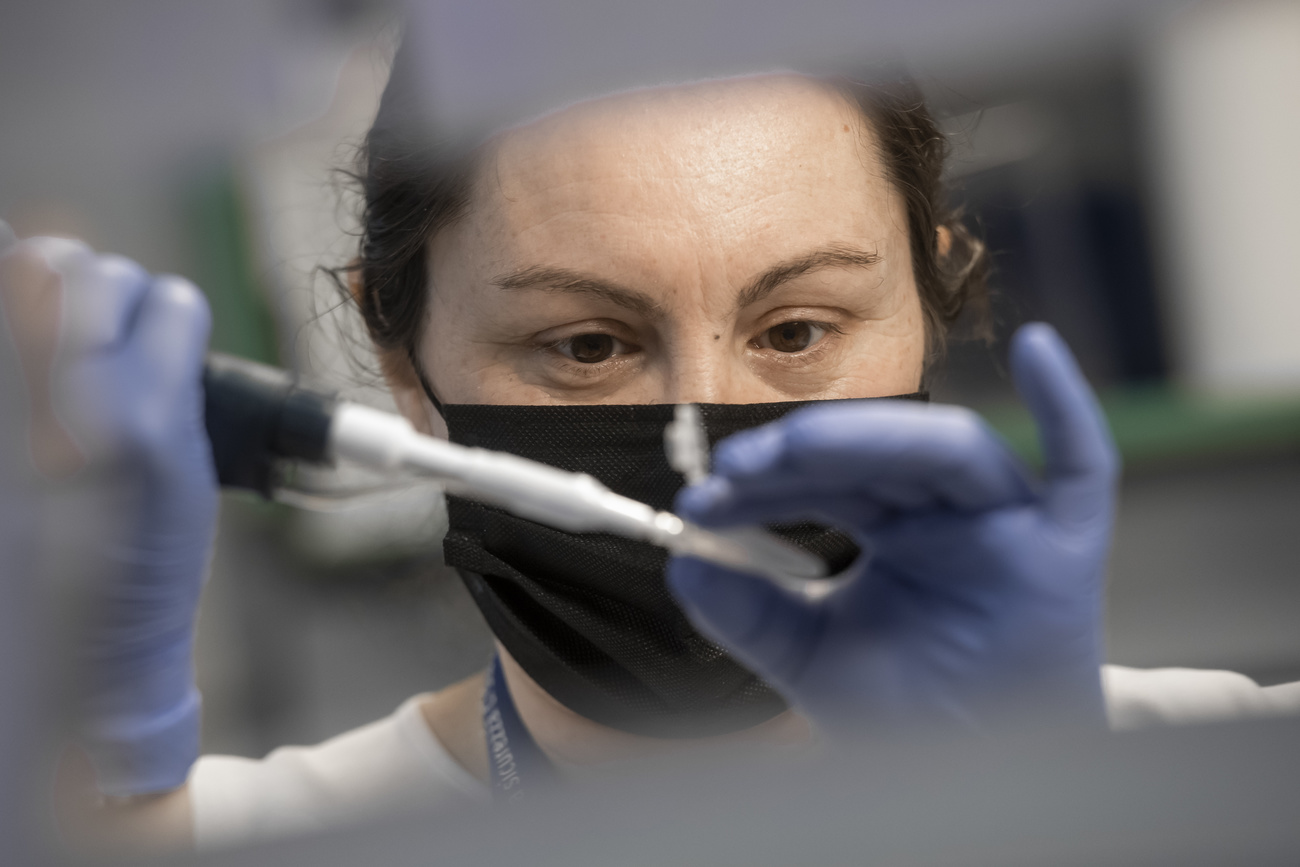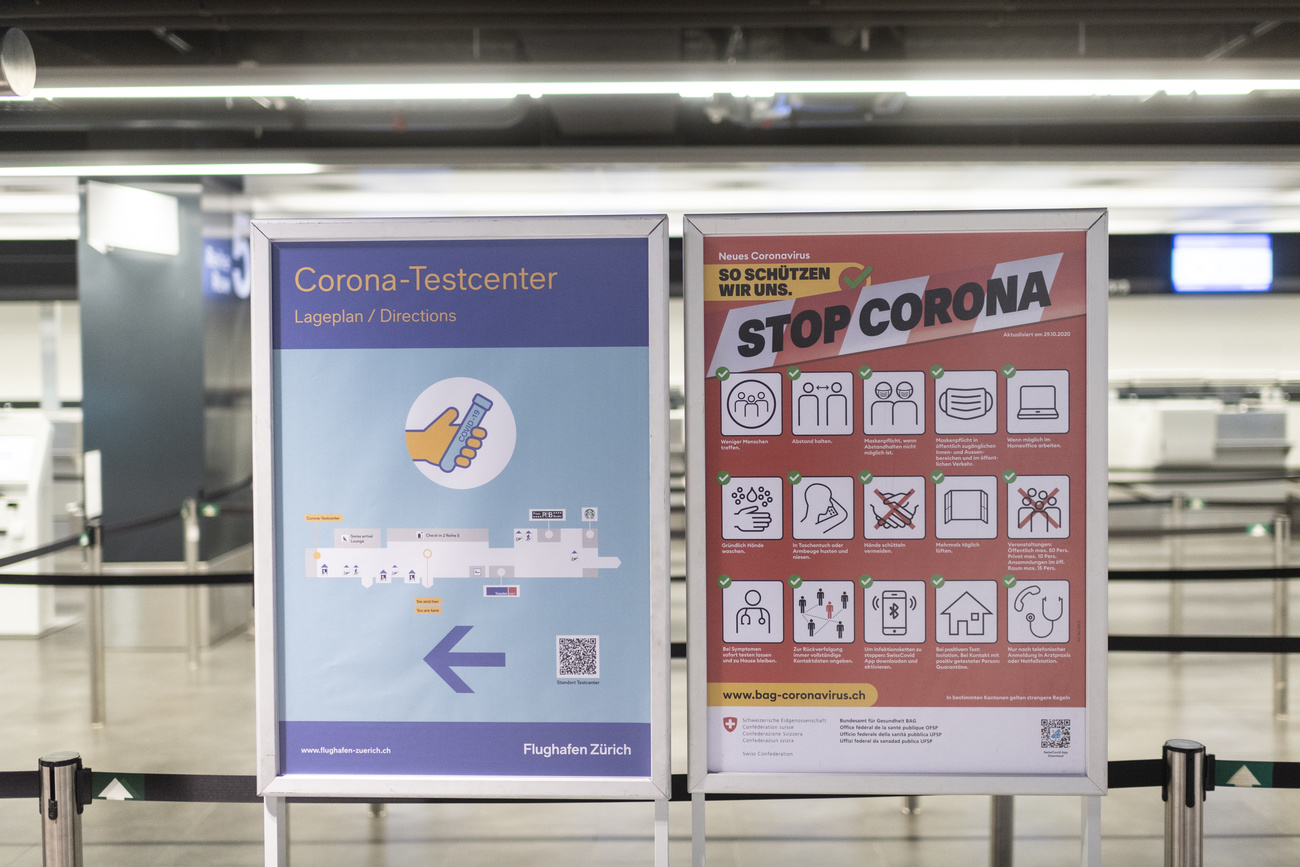
More effort needed to fight new variants, says Covid-19 taskforce

With the number of new contagious Covid-19 variants spreading, Switzerland must step up rather than reduce efforts to combat the virus, the head of the government’s Covid-19 taskforce has declared.
The Federal Office of Public Health (FOPH) reported 1,363 new infections related to Covid-19 on Tuesday, as well as 70 new hospital cases and 42 deaths. The number of infections continues to fall slowly – the seven-day average was down by 13% compared to a week ago. Numbers are lower across the country, apart from in the Lake Geneva region, where figures have stagnated.
But new coronavirus variants, which are around 50% more contagious, pose a real risk of a third wave of infections in Switzerland, health officials warn. So far, 4,411 cases of the mutated coronavirus variants have been discovered in Switzerland , around 60% more than a week ago. The FOPH said on Tuesday that it had identified the first case of a Brazilian variant, which also appears to spread more swiftly than others.

More
‘The virus is always evolving’
According to Martin Ackermann, the head of the government’s Covid-19 taskforce, the British variant, known as B117, has doubled every ten days and now represents around 20% of the current active caseload in Switzerland.
In view of the potential for an exponential increase in new variants in March, “we must increase our efforts rather than reduce them”, he told reporters in Bern on Tuesday.
“We are dealing with two types of viruses that are following opposite trends,” he said. On the one hand, there are the “old” dominant variants that are declining, and on the other, the new variants that Switzerland has been unable to contain so far.

More
Coronavirus: the situation in Switzerland
While the British variant in particular is steadily increasing, the old variants are decreasing faster than expected thanks to the measures taken, said the health expert.
Among additional anti-Covid measures, Ackermann said there was potential to further reduce how much the population moves around. Since the introduction of a semi-lockdown on January 18, individual mobility has fallen by only 10%. A Swiss resident travelled on average 30 kilometres per day in January, compared to under 20km during the spring 2020 lockdown.
Meanwhile, health officials say they are satisfied with the rhythm of the ongoing vaccination campaign in the cantons, despite vaccine holdups. Around 4.8% of the population has been vaccinated since late December, and differences between regions have been reduced. Of the 800,000 doses received, 700,000 have been distributed to the cantons.
Vaccinations of the most vulnerable people should be completed by the end of April, the FOPH said on Tuesday. The government has set an ambitious target: to inoculate six million people or 70% of the population – on a voluntary basis – by summer, or up to 70,000 vaccine shots per day.

More
Switzerland changes policy on Covid testing and quarantine

In compliance with the JTI standards
More: SWI swissinfo.ch certified by the Journalism Trust Initiative






























You can find an overview of ongoing debates with our journalists here . Please join us!
If you want to start a conversation about a topic raised in this article or want to report factual errors, email us at english@swissinfo.ch.